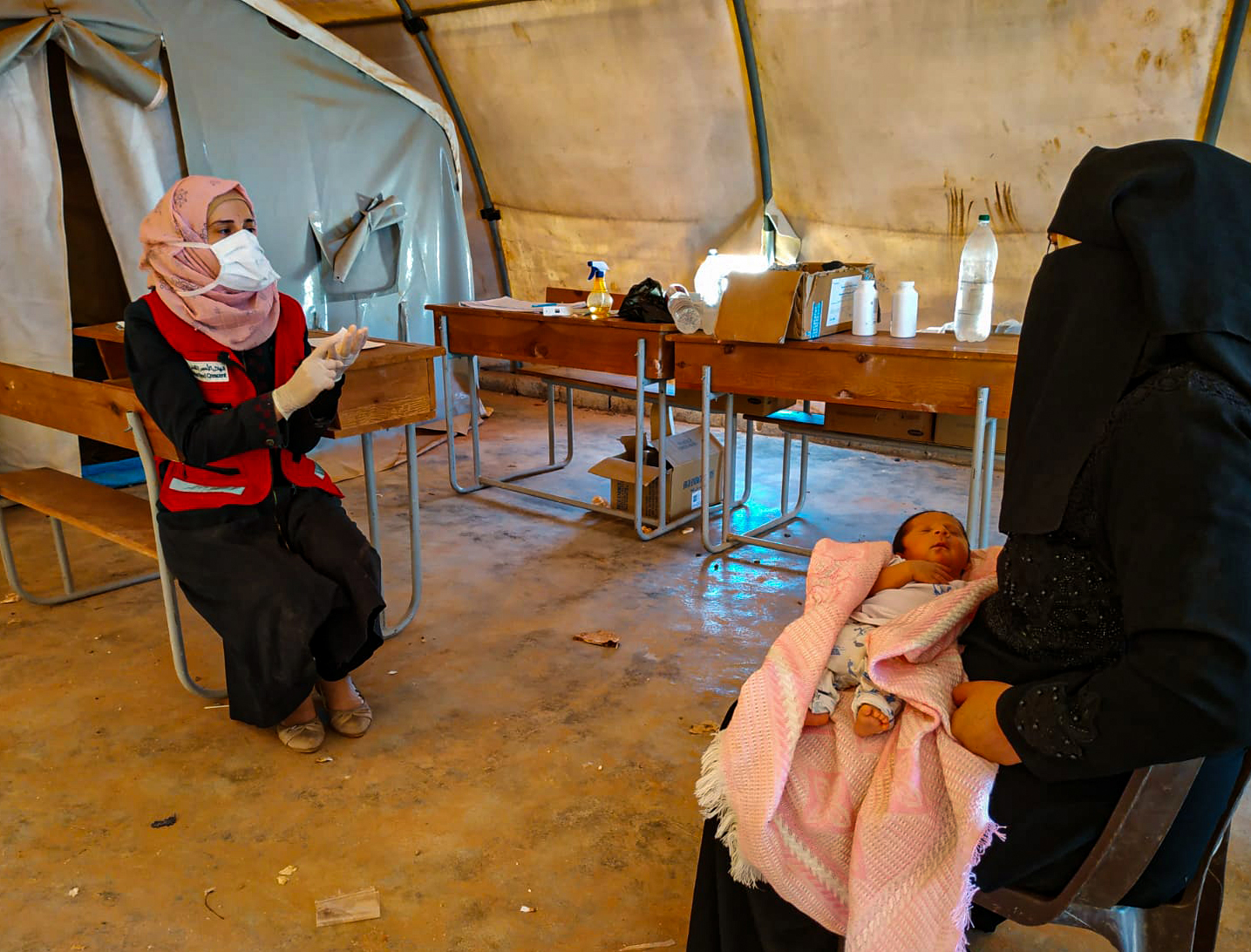The Qatar Red Crescent Society has begun implementing the latest stage of an initiative which provides public health services to thousands of people in northwestern Syria.
The Qatar Red Crescent Society (QRCS), with support from the United Nations Office for the Coordination of Humanitarian Affairs (OCHA), have begun the operational phase of a project which aims to provide vital therapeutic and preventative nutrition services some of Syria’s most vulnerable communities.
This project is expected to benefit over 100,000 people, including 53,000 pregnant or breastfeeding women and another 58,000 children. It will be operational in 29 villages across the Syria’s northwestern region, as well as 24 camps of internally displaced persons (IDPs).
Since its inception, QRCS has worked on empowering and aiding vulnerable communities in some of the world’s poorest countries or those that have been severely affected by wars or natural disasters. This project aims to save lives and reduce health problems by reducing mortality rates among young children, pregnant women, and nursing mothers.
The charity has introduced mechanisms that allow for effective screening for severe malnutrition at any stage. It also provides micronutrients and nutritional supplements while directing more severe cases to specialised centres for medical attention. Part of the initiative also focusses on increasing public awareness about adequately taking care of infants and young children.
So far, QRCS has carried out similar initiatives in Syria through its educational projects, child nutrition and emergencies, and concerns related to Covid-19. It has also aided Syrian refugees in Turkey, which is home to an estimated 3.6 million displaced persons from Syria.
Read more: Qatar Charity bolsters Syria women and children’s hospital with essential equipment
The initial stages of the project were focused on hiring and training medical personnel under eight rapid response teams and rehabilitating target centres. Each team consisted of one midwife, one nurse, one malnutrition therapist, two community health workers, and one data entry officer. With the coordination of local authorities and humanitarian organisations operating in the region, the first stage of the project was completed in 2020.
Nutrition services are offered through the seven centres and two rapid response teams to widen the scope of coverage, and reach those most vulnerable in remote areas. All services are conducted through the implementation of World Health Organisation-approved guidelines to minimise the spread of Covid-19 infections.







